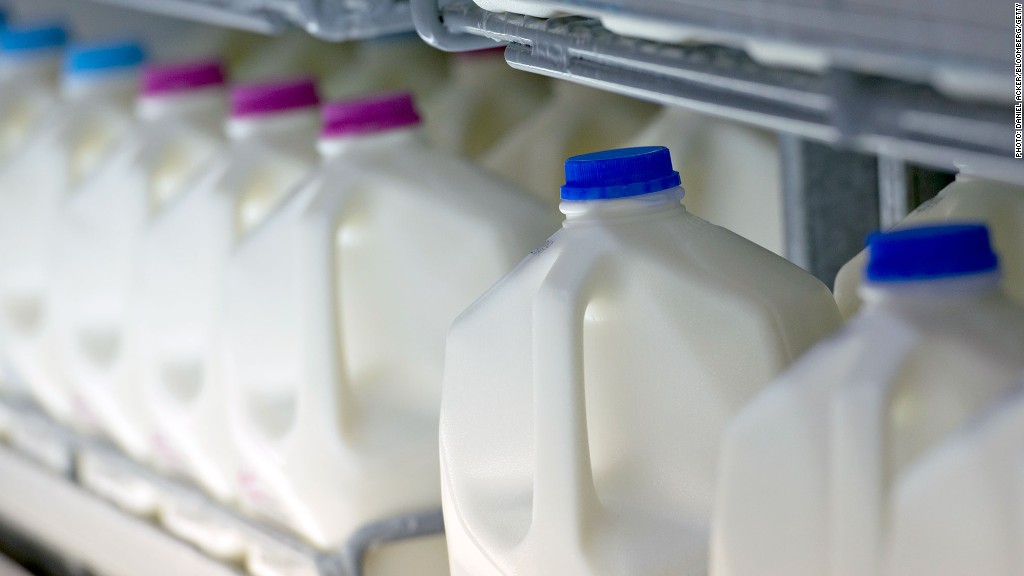
Even though a budget measure that governs farm subsidies expires along with 2013, top lawmakers negotiating a new farm bill say they're close to finishing a deal that would avert price spikes in milk and other commodities.
The fear has been that a lack of a farm bill would cause the price of milk could double to $7 a gallon from the current national average of about $3.50.
But Secretary of Agriculture Tom Vilsack told CNN last week that a dairy spike won't happen right away.
Congressional aides say Vilsack has assured lawmakers that he won't quickly implement an old subsidy formula from the 1940s that allows milk and other commodity prices to rise sharply once the farm bill lapses.
Related: Minimum wage to rise in 13 states on Jan. 1
The House moved to avoid such an increase by passing a short-term fix extending the current farm measure. The Senate did not pass that fix but could face pressure to pass a temporary solution in January if prices really are on the verge of soaring.
Dairy economists say there's time. Even if the USDA does start to allow support at higher prices, it would take several weeks for that formula to settle into current dairy prices. That's in part because, thanks to strong demand; most of the dairy supply is already contracted to be sold to milk processors at current prices.
"In the unlikely event that we don't see an extension of the farm bill, it would still take several weeks for the impact of these higher support prices to work its way through our milk-pricing mechanism," said Mary Ledman, dairy economist with the Daily Dairy Report based in Libertyville, Ill.
Ledman estimated the earliest any price spike would start to happen would be in March and April, because the spring is when U.S. milk production rises.
The farm bill would end direct payments to farmers in favor of crop insurance programs to keep prices stable in disasters.
Chief negotiators are also reportedly close to a deal on food stamps. House Republicans have wanted to tighten up eligibility rules, which would lead to some being dropped from the rolls.
Related: Our family will lose $44 in food stamps
However, differences remain in other areas of the farm bill. Agricultural lobbyists say they're hopeful lawmakers can work out a new measure by the end of January.


